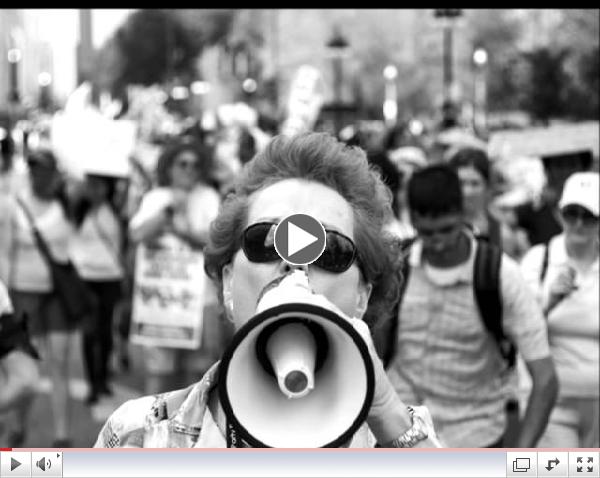 | |
Aliquippa's Rapper Dorian Stevens 'Revolution' from 'Something Different '
|
|
 | |
Journal of the Black Left Unity Network
|
|

New CCDS Book Reporting on Vietnam
|
 The new annual edition of our journal of discussion and analysis is now out. More than 130 pages, it includes 20 articles on organizing, racism and the right. Cost is $10 plus shipping. Or get one by becoming a sustainer. Click the title to buy it directly. The new annual edition of our journal of discussion and analysis is now out. More than 130 pages, it includes 20 articles on organizing, racism and the right. Cost is $10 plus shipping. Or get one by becoming a sustainer. Click the title to buy it directly.
|
|
Radical Jesus:
A Graphic History of Faith 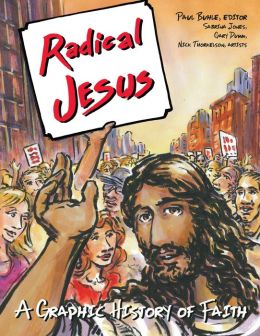 By Paul BuhleHerald Press By Paul BuhleHerald Press
|

Want to Know what CCDS has
been doing...Check it Out!
|
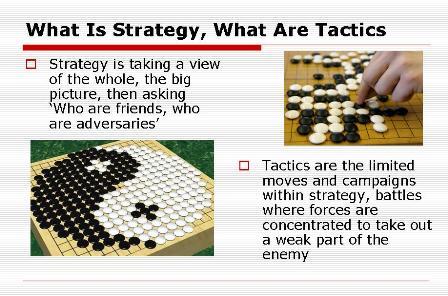 Keep On Keepin' On Keep On Keepin' OnWhy Socialists Run in Elections, Strategy and Tactics Slide Slow, Class and Privilege, the Green New Deal ...and other Short Posts on Tumblr by Carl Davidson
|

Edited by Carl Davidson Revolutionary Youth the the New Working Class: The Praxis Papers, the Port Authority Statement, the RYM Documents and other Lost Writings of SDS
Changemaker, 273pp, $22.50
For the full contents, click the link and view 'Preview' under the cover graphic.
|
|
By Randy Shannon, CCDS

"Everyone has the right to work, to free of employment, to just and favorable conditions of work and to protection against unemployment."
- United Nations Universal Declaration of Human Rights, December 10, 1948
I. Introduction
The "Great Recession" that began in 2007 has caused the greatest percent of job losses since the Great Depression of 1929. This crisis is the end of an era of unrestrained 'neo-liberal' capitalism that became public policy during the Reagan administration. The crisis marks a new level of instability with the growth of a global financial elite that targeted US workers and our trade unions after World War II.
|
|
Order Our
Full Employment Booklets
 |
...In a new and updated 2nd Edition
Capitalism may well collapse under its own excesses, but what would one propose to replace it? Margaret Thatcher's mantra was TINA...There Is No Alternative. David Schweickart's vision of "Economic Democracy" proposes a serious alternative. Even more fundamentally, it opens the door to thinking about alternatives. His may or may not turn out to be the definitive "successor system," but he is a leader in breaking out of the box. |
 by Paul KrehbielAutumn Leaf Press, $25.64
by Paul KrehbielAutumn Leaf Press, $25.64 | | Shades of Justice Video: Bringing Down a President, Ending a War |
|
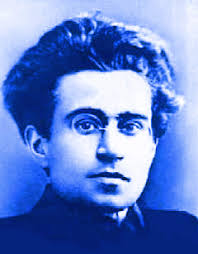 By Giuseppe Fiori
Verso, 30 pages
|

Essays on Mondragon, Marx, Gramsci
and the Green and Solidarity Economies |
Solidarity Economy:What It's All About

Edited by Jenna Allard, Carl Davidson and Julie Matthaei
Buy it here...
|

- Foreword by Susan Brownmiller
- Preface by Ken Wachsberger
$37.50 + $6 shipping
|
|
Discussion Documents for a Militant Movement

By Don Hamerquist
|
|
|
|
An Invitation to CCDSers and Friends...
 Money Making Money Making
More Money,
But at Our Expense
We're the Committees of Correspondence for Democracy and Socialism...Do you have friends who should see this? Pass it on...Do you have a blog of your own? Others you love to read every day? Well, this is a place where you can share access to them with the rest of your comrades. Just pick your greatest hits for the week and send them to us at carld717@gmail.com! Most of all, it's urgent that you oppose war on Iran, defend voter rights, plan for 2014 races now, oppose austerity, support the 'Moral Mondays' in North Carolina, the Congressional Progressive Caucus' 'Back to Work Budget'! We're doing more than ever, and have big plans. So pay your dues, make a donation and become a sustainer. Do it Now! Check the link at the bottom... |
How Wall Street Is Sucking Huge
Amounts of Money from Los Angeles

By Les Leopold Alternet.org
March 25, 2014 - Los Angeles paid at least $204 million in fees to Wall Street in 2013, and probably significantly more, in addition to principle and interest payments, according to the report, "No Small Fees: LA Spends More on Wall Street than Our Streets [3]."
The study, issued today by a coalition of unions and community organizations, shows that due to revenue losses from the "Great Recession," L.A. "all but stopped repairing sidewalks, clearing alleys and installing speed bumps. It stopped inspecting sewers, resulting in twice the number of sewer overflows." L.A. spends at least $51 million more in Wall Street in fees than it allocates for its entire budget for the Bureau of Street Services.
The researchers caution that the $204 million figure likely underestimates the true amount, because under current disclosure rules, deals made with private equity companies and hedge funds do not have to be publically disclosed. Also, because the city does not list all these fees in one centralized report, hundreds of individual documents must be reviewed to uncover the amounts. As one of the report's researchers stated,
"This is the first time an accounting of fees has been exposed for a specific public entity, and we don't think we have captured it all. So if you do this for every public entity, cities, counties, school districts, states, and universities, transportation agencies and other public entities we could be looking at an astounding amount of money for education and community services money sucked out of the system."
Astounding indeed. My back of the envelope estimate, extrapolating the L.A. experience to the economy as a whole, suggests that the fees Wall Street extracts from public entities could total more than $50 billion a year - enough to provide free tuition at every public college and university in the country....(Click title for more)
|
|

By Dave Johnson
Campaign for America's Future
March 25, 2014 - A building in Harlem blows up because of a gas leak, killing at least eight people and injuring at least 70 others. A bridge collapse in Minneapolis killed 13 and injured 135. New Orleans' levees needed to be fixed but weren't, and more than 1,800 people died as a result. The Chamber of Commerce's Thomas Donohue said back in 2007, "Poorly maintained roads contribute to a third of all highway fatalities. That's more than 13,000 deaths every year."
These are just a few example of the harm done because we are not maintaining our country's public and private infrastructure. The problem of our crumbling infrastructure is not just costing us jobs and economic growth, it is killing people.
The Most Recent Example
A building in New York City blew up because of poorly maintained gas lines. The explosion killed at least eight people and injured at least another 70. The problem extends much, much further than just this building. The New York Times, in "Beneath Cities, a Decaying Tangle of Gas Pipes," reports:
In 2012 alone, Con Edison and National Grid, the other distributor of natural gas in the city, reported 9,906 leaks in their combined systems, which serve the city and Westchester County. More than half of them were considered hazardous because of the dangers they posed to people or property, federal records show. (There are more than 1.2 million miles of gas main pipes across the country. Last year, gas distributors nationwide reported an average of 12 leaks per 100 miles of those pipes.)
In 2010, a 30-inch gas pipeline exploded under a suburb in San Bruno, California and took out an entire neighborhood, killing eight people.
Near Misses
We read about the big ones: buildings blowing up, bridges falling down, people killed. But there are many, many near misses. From the Times story:
"It's like Russian roulette," said Robert B. Jackson, a professor of environment and energy at Stanford University who has studied gas leaks in Washington, D.C., and Boston. "The chances are, you are going to be lucky, but once in a while, you're going to be unlucky."
Striking in federal records is just how frequently there are near misses.
Last year, a Bronx woman awoke in the middle of the night to the pungent odor of gas. Her husband checked it out, but after smelling nothing unusual, he lit a cigarette. Suddenly, there was a flash of fire that left his face badly burned. In 2011, a 28-year-old man in Bayside, Queens, saw smoke coming from a basement utility room just before a small explosion blew the door open. The cause was traced to a leak in a 54-year-old steel main in the street nearby.
Why Aren't We Fixing The Infrastructure?
It costs money to replace old pipelines, the outdated power grid, and all the rest of the old infrastructure. Most gas pipelines and electric power lines are the responsibility of the private sector, the ones who want government to "just leave us alone" and stop all the regulation. They want "government off our backs" so they can use the money they should be putting into infrastructure maintenance to give out as profits instead.
Our public roads, schools, bridges, airports, etc. also need maintenance and replacement. That costs money, too - "government spending."
But it also costs money to save money. If you put off maintenance until something breaks, you have to pay a lot more for replacement. And you have to pay the economic cost of bad roads, etc. By the same token if you deregulate and don't require private companies to do their needed maintenance, they'll shift that cost over into the profit line - for a while, until the damage is done, people are injured and penalties and fines are imposed. "Saving" money by putting off infrastructure maintenance costs money later, and now we see how it costs lives, as well....(Click title for more)
|

Click photo for video
By Karin Kamp
Moyers and Company
March 21, 2014 - If you look up "dark money" in Merriam-Webster, you won't find a definition, but as of this week, their online unabridged dictionary includes a word that tells a big part of its story - "super PAC." It's defined in part as "an independent PAC [political action committee] that can accept unlimited contributions from individuals and organizations (such as corporations and labor unions) and spend unlimited amounts in support of a candidate." It's a fitting reminder that four years after Citizens United, the Supreme Court decision that opened the floodgates of campaign cash, dark money may be here to stay.
In this three-minute video, (above) investigative reporters Kim Barker and Andy Kroll tell Bill how dark money contributes to Washington's gridlock and why it keeps politicians from acting in the best interest of their constituents.
Barker tells Bill, "I would argue that if you're wondering why your government is so broke and you can't really get anything passed through Congress, campaign finance has a lot to do with that."
Kroll adds this analogy on super PAC dark money from a conversation that he had with an unnamed senator.
I had a conversation with a progressive senator who is not a fan of super PACs and at the time did not have his own sort of individual super PAC... And I said, 'What is this like when you're going to go up against an opponent who does have a super PAC and does have a motivated one percenter in his corner?' And he said, 'It's like going into a boxing ring. I'm wearing boxing gloves. And the other guy has an Uzi....(Click title for more)
|

Demonstrations in Georgia and South Carolina highlight growing movement against conservative control
By Lauren McCauley
Common Dreams
March 19, 2014 - Disrupting a session of the Georgia Senate, protesters unfurled a large banner denouncing the GOP-led push against health care in the state. (Photo: Moral Monday Georgia/ Facebook)Waves of liberal protest are rippling across the South as a newly energized base-fueled by the momentum of the Moral Monday protests in North Carolina-are declaring to the largely Republican establishment that they will no longer be ignored.
Thirty-nine protesters were arrested at the capitol building in Atlanta, Georgia on Tuesday during a raucous protest against the GOP-led effort to prohibit Medicaid expansion in the state. In South Carolina, 17 demonstrators were also arrested at the Columbia state house in the third weekly demonstration against lawmakers' refusal to accept federal health care funding.
"The movements are rare stirrings of impassioned, liberal political action," writes Herbert Buchsbaum at the New York Times, "in a region where conservative control of government is as solid as cold grits and Democrats are struggling for survival more than influence."
The focus of these demonstrations was health care, but the rhetoric of those protesting touched upon a wide swath of issues, from education to voting rights to women's health. Spinning off from the Moral Monday movement in North Carolina-which organizes weekly demonstrations and grew into a massive march of more than 80,000 people last month-the demonstrators are borrowing the notion of morality- and agenda-based protests, including issues that resonate with the poor and minority populations in the South.
"We are at the beginning of a new Southern strategy," said Tim Franzen, the lead organizer behind Moral Monday Georgia, which held its first protest in early January. "The changes we need to make in Georgia to transform the state are going to take years. But with the changing demographics of the South, our victory is inevitable. This train has left the station."
In orchestrated waves of civil disobedience action, protesters in the Atlanta capitol building interrupted deliberations in the Senate gallery before rallying beneath the main rotunda and then blocking the entrance to Governor Nathan Deal's (R) office with a sit-in....(Click title for more)
|
Bernie Sanders Takes on 'Welfare for Walmart'
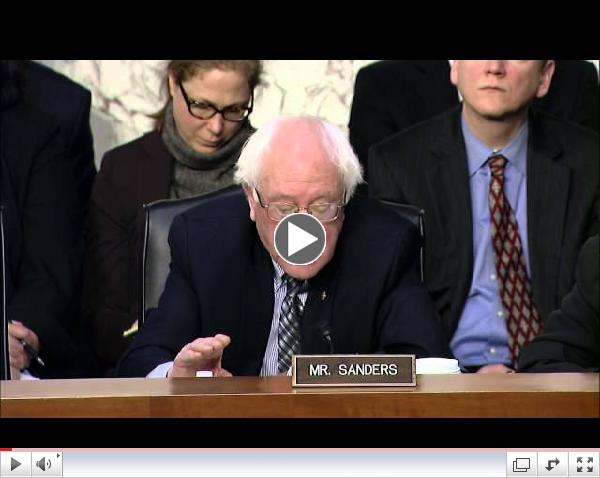 | |
Walmart's low wages subsidized by the public
|
|
Meet the Americans Who Put
Together the Coup in Kiev

Victoria Nuland in Kiev with US Ambassador to Ukraine Geoffrey Pyatt at opposition protest
By Steve Weissman
Reader Supported News
March 14, 2014 - If the US State Department's Victoria Nuland had not said "Fuck the EU," few outsiders at the time would have heard of Ambassador Geoffrey Pyatt, the man on the other end of her famously bugged telephone call. But now Washington's man in Kiev is gaining fame as the face of the CIA-style "destabilization campaign" that brought down Ukraine's monumentally corrupt but legitimately elected President Viktor Yanukovych.
"Geoffrey Pyatt is one of these State Department high officials who does what he's told and fancies himself as a kind of a CIA operator," laughs Ray McGovern, who worked for 27 years as an intelligence analyst for the agency. "It used to be the CIA doing these things," he tells Democracy Now. "I know that for a fact." Now it's the State Department, with its coat-and-tie diplomats, twitter and facebook accounts, and a trick bag of goodies to build support for American policy.
A retired apparatchik, the now repentant McGovern was debating Yale historian Timothy Snyder, a self-described left-winger and the author of two recent essays in The New York Review of Books - "The Haze of Propaganda" and "Fascism, Russia, and Ukraine." Both men speak Russian, but they come from different planets.
On Planet McGovern - or my personal take on it - realpolitik rules. The State Department controls the prime funding sources for non-military intervention, including the controversial National Endowment for Democracy (NED), which Washington created to fund covert and clandestine action after Ramparts magazine and others exposed how the CIA channeled money through private foundations, including the Ford Foundation.
State also controls the far-better-funded Agency for International Development (USAID), along with a growing network of front groups, cut-outs, and private contractors. State coordinates with like-minded governments and their parallel institutions, mostly in Canada and Western Europe. State's "democracy bureaucracy" oversees nominally private but largely government funded groups like Freedom House. And through Assistant Secretary of State for European and Eurasian Affairs Victoria Nuland, State had Geoff Pyatt coordinate the coup in Kiev.
The CIA, NSA, and Pentagon likely provided their specialized services, while some of the private contractors exhibited shadowy skill sets. But if McGovern knows the score, as he should, diplomats ran the campaign to destabilize Ukraine and did the hands-on dirty work....(Click title for more)
|
 12 Steps to Realizing the 12 Steps to Realizing the
U.S.'s New Populist Movement
By Roger Hickey
Campaign for America's Future
March 19, 2014 - A new progressive populist movement is rising up in the United States. Inspired by an expansive vision of greater economic opportunity for all Americans, this new movement is also fueled by anger over politicians' broken promises. After decades of recurring economic crisis, which now seems systemic and permanent, millions of Americans have come to realize that much of our democratic system is now owned by a moneyed elite that use their power to resist real change and to manipulate the economy for their own financial gain.
Even the mass media know something big is going on. At the end of November, a Washington Post headline announced, "More liberal, populist movement emerging ahead of 2016 elections [3]." And the New York Times, in a September article [4], reporting on the new progressive insurgency, cited the excitement generated by Massachusetts Sen. Elizabeth Warren and the new populist mayor of New York, Bill de Blasio. These and other media reports have been based on important new populist victories that represent the visible tip of a very large iceberg:
Low-wage workers and their allies have filled the streets of America's major cities, demanding a living wage and the right to bargain for wages and benefits. Their basic demand, echoed now by political leaders, is that full-time work should pay enough to keep a family out of poverty.The cry of "break up the big banks" is now heard from protests at bank shareholder meetings to the halls of Congress. Many of the groups who worked to pass the Dodd-Frank bill have joined with housing advocates and others to demand Wall Street prosecutions - and real bank reform championed by Ohio Sen. Sherrod Brown and Sen. Warren.
Lawrence Summers, President Obama's top choice for Chair of the Federal Reserve, was stopped from getting that important job by a coalition of civic activists, including women and financial reform groups. Their favorite, Janet Yellen, was appointed instead.
The national debate on the future or Social Security has been flipped - from "Stop cutting benefits" to "Expand Social Security." Activists got Iowa Sen. Tom Harkin to introduce a bill with Sen. Sherrod Brown to expand benefits. Sen. Warren helped achieve critical mass. Conservative "Third Way" operatives attacked, but actual Third Way Members of Congress denounced their own group - and several actually embraced Social Security expansion [5]. And after grassroots pressure, President Obama withdrew his plan to cut Social Security benefits
Political reporters have tended to frame the New Populism as either a challenge to President Obama, or as an agenda and constituency for whoever might run against Hillary Clinton. But hard experience has taught us we need to build an independent force that can fight the big corporate interests and shape a positive agenda for all politicians who claim be for progressive change. ...(Click title for more)
|
 By Martin Nicolaus By Martin Nicolaus
Nicolaus.com
March 22, 2014- Sunshine, the saying goes, is the best disinfectant. But sometimes letting the sunshine in takes extraordinary measures. Bringing the cleansing rays to bear on the rotten state of the FBI in 1971 took nothing less than forcefully breaking and entering.
Betty Medsger's new book, The Burglary, the Discovery of J. Edgar Hoover's Secret FBI (Knopf 2014) is a thriller of a tale, begging to be made into a movie, about an extraordinary group of young anti-war activists who pulled off one of the most successful heists of all time: the burglary of the FBI field office in Media, Pennsylvania, on March 8, 1971.
These were terrible times. The government was spilling rivers of blood in Vietnam while trampling on the civil rights of black Americans. Millions of Americans became aroused politically and, to one degree or another, went into opposition. One of the hot spots was the peace movement in Philadelphia. Frustrated by the apparent futility of lawful dissent, as were many others all over the country, groups of activists had been engaged in breaking into draft board offices and destroying their files. Out of this movement, which found inspiration in Catholic liberation theology, came the project to penetrate the FBI.
William Davidon (no "s"), a mild-mannered young physics lecturer at Haverford College, was the organizer. His quiet, undemonstrative demeanor and his technical, pragmatic mind were among the keys to the success of the mission. Acting without fanfare, he recruited eight other activist friends and formed a "Citizen's Commission to Investigate the FBI." Their target: the small local FBI office in Media, PA, a western suburb of Philadelphia.
There were good reasons to target the FBI. It had become apparent to people active in all off the movements of the time that the FBI had penetrated every organization and was spying on perfectly legitimate free speech and free assembly activities, and acting to chill and repress Americans' constitutional right to express their dissent. The press, long in thrall to J. Edgar Hoover, had done virtually nothing about it. A few questions had been raised, but there was little in the way of proof. Davidon and his group figured that the proof would be in the FBI's internal files, and they determined to get them.
Medsger spins the story of the plot like the thriller it was. She was able to interview all but one of the participants, including Davidon himself, before his death in late 2013. The group members' diverse personalities and backgrounds stand out in vivid profiles within the panorama of those times. Medsger explains at length the mental and emotional processes that led them to agree to participate. All faced long terms in prison if caught, and for some of them this would have meant separation from their young children. Under Davidon's guidance they tackled the practical details of the heist as if they had been professional burglars: casing the office and the neighborhood for many long hours, learning how to pick locks, figuring out escape routes, finding a depot for the papers, reviewing, copying, and releasing the relevant documents - and all of this in their spare time, without telltale absences from their regular commitments.
And of course, despite meticulous planning and rehearsals, things went badly wrong. One member of the group dropped out the night before the action, saying he was thinking of turning them all in. The door to the FBI office turned out to be protected by two locks, not one, and the second lock was unpickable, so they broke in through a door in the hallway that was protected by a huge file cabinet. Nonetheless, they succeeded in relieving the office of all of its files, carrying them out in suitcases, and got away. Their document depot was never found. They released significant batches of documents to members of Congress and the press (Including Medsger, who was then working for the Washington Post), with spectacular results. What Snowden has done to the NSA and Ellsberg did to the Pentagon, the Media burglars did to the FBI....(Click title for more)
|
|
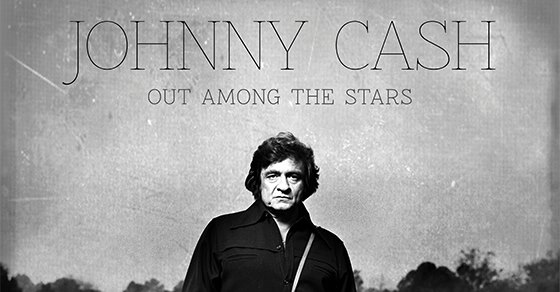
The country giant's voice rings true, 11 years after his death, on 'Out Among the Stars.'By Brian Mansfield
Special for USA TODAY
March 23, 2014 - When Johnny Cash recorded the material for Out Among the Stars, releasing it probably seemed pointless.
Though he had joined the Country Music Hall of Fame four years prior, Cash was at the commercial nadir of his career in 1984. He'd had just one top 10 hit since his induction; most of his '80s albums hadn't even charted. The Man in Black had been relegated to releasing singles like The Chicken in Black, a novelty about having his brain transplanted into the body of a farm bird.
Heard 30 years later, the dozen previously unreleased recordings on Out Among the Stars show an iconic voice in fine and sober form but struggling to find a creative direction.
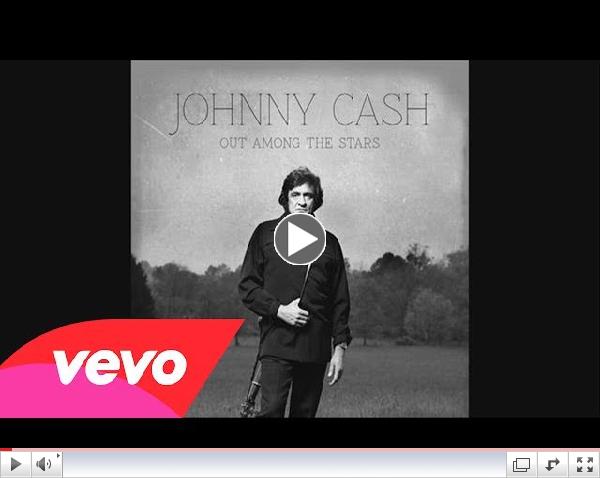 | | Johnny Cash - She Used To Love Me A Lot (audio) |
"Here's my father in his prime, shining vocally and physically, because inside, his spirit is alive," says son John Carter Cash, who worked on the restoration of the recordings, originally cut in 1981 and 1984 with producer Billy Sherrill. "What I hear, what gets me so excited, is personal. I'm getting back in contact with the man who was my best friend in 1984. I get to hang out with these records and spend some time with my dad, remember him as he was at that time in my life."
Out Among the Stars, out Tuesday, will probably get more attention now, 11 years after Cash's death, than it would have if Columbia Records had released the album in 1984.
"He was singing his heart out at that time; nobody cared," says Marty Stuart, who was part of Cash's road band and played guitar and mandolin both on the original sessions and when instrumentation was added last year. "But it didn't matter what he sang, he could still make a living being Johnny Cash. Let him put a black coat on and walk through the middle of Missouri, or an airport, and he would still lay the place to waste."
The material includes darker tunes like She Used to Love Me a Lot and the title track, as well as more humorous tales, such as If I Told You Who It Was, about a surprising rendezvous with another of the era's country celebrities, and the macabre I Drove Her Out of My Mind. The album also contains a pair of duets with Cash's wife, June Carter Cash, and a version of Hank Snow's I'm Movin' On, recorded on a day when Waylon Jennings dropped by the studio. It's one of the album's highlights....(Click title for more)
|
Start 2014 With a Red Resolution...
Become a CCDS member today!
 The time is long past for 'Lone Rangers'. Being a socialist by your self is no fun and doesn't help much. Join CCDS today--$36 regular, $48 household and $18 youth. The time is long past for 'Lone Rangers'. Being a socialist by your self is no fun and doesn't help much. Join CCDS today--$36 regular, $48 household and $18 youth.
Better yet, beome a sustainer at $20 per month, and we'll send you a copy of Jack O'Dell's new book, 'Climbing Jacobs Ladder,' drawing on the lessons of the movement in the South in the 1950s and 1960s.
Solidarity, Carl Davidson, CCDS
|
|
|